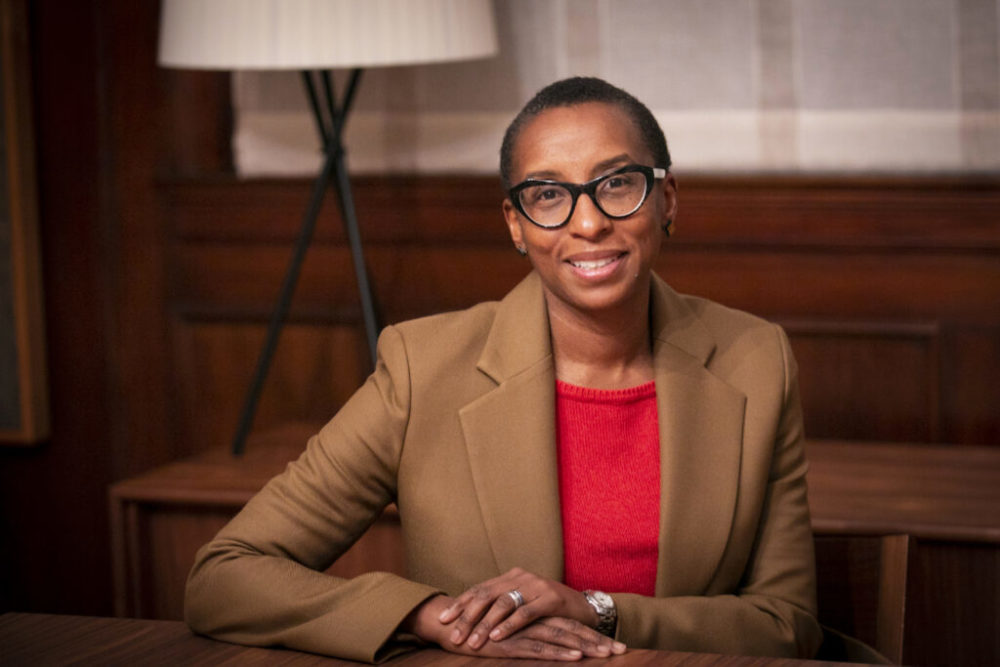
Harvard University has named its next leader.
Claudine Gay will become Harvard’s 30th president in July, and the first Black person to enter the role. She’ll take over the job from Lawrence Bacow, who announced in June plans to step down after a five-year tenure.
A crowd that knows Gay well greeted her warmly as she was formally announced inside Harvard’s Smith Campus Center Thursday afternoon.
Penny Pritzker — a senior fellow on the university’s board of overseers who led the presidential search committee — described Gay as a “bridge-builder … who collaborates naturally” across disciplines and departments.
Gay first came to Harvard in the 1990s as a graduate student in government, bringing “a futon, a [Macintosh computer], and a cast-iron skillet for cooking plantains.”
Gay earned her Ph.D. in government there in 1998. After a five-year term teaching at Stanford, her undergraduate alma mater, she returned to Harvard in 2006, where she has since taught both political science and African-American studies.
The daughter of Haitian immigrants, Gay said “college was always the expectation for me.” She says her parents — who had hoped she would be an engineer, lawyer or doctor — came to support her career as a political scientist, during which she has studied and taught voting behavior, Black politics after the Civil Rights era, and housing and urban policy.
In her remarks Thursday, Gay acknowledged Harvard will face challenges under her leadership, including a Supreme Court ruling on the university’s approach to affirmative action, which is expected around the time she takes office in the summer of 2023.
Speaking to the press Thursday, Gay declined to “prejudge the outcome or engage in hypotheticals,” but said that “irrespective of the decision, [Harvard] will comply with the law,” while remaining committed to diversity on campus.
Many expect the high court’s conservative majority to overturn the longstanding practice of limited racial preferences in admissions.
Gay stressed that she hopes to lead a university that’s in close contact with the world outside, saying Harvard’s “ivory tower” reputation is “the past, not the future.”
That meant, Gay said, a continued commitment to generous financial aid, a role in convening vital conversations about pressing problems, and growing “communities of learners who might not ever step foot in Harvard Yard” through remote continuing education.
The presidential search did not have to look far for Gay: she had been serving as dean of Harvard’s Faculty of Arts and Sciences, one of the university’s most prominent jobs, since 2018.
As she oversees her own transition to the presidency and the search for her replacement, Gay said she anticipates a “busy spring.”








